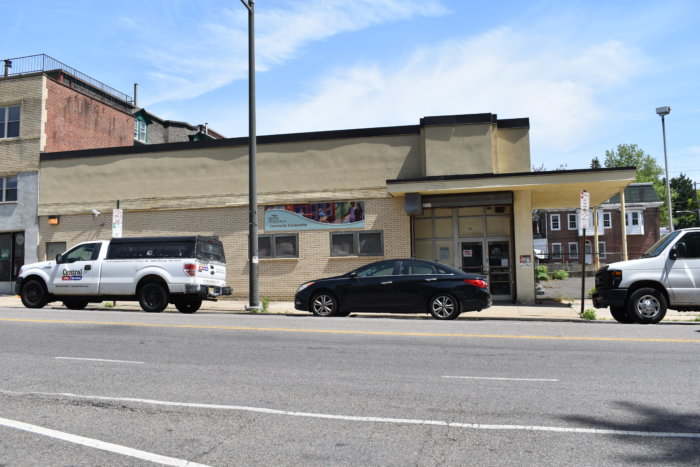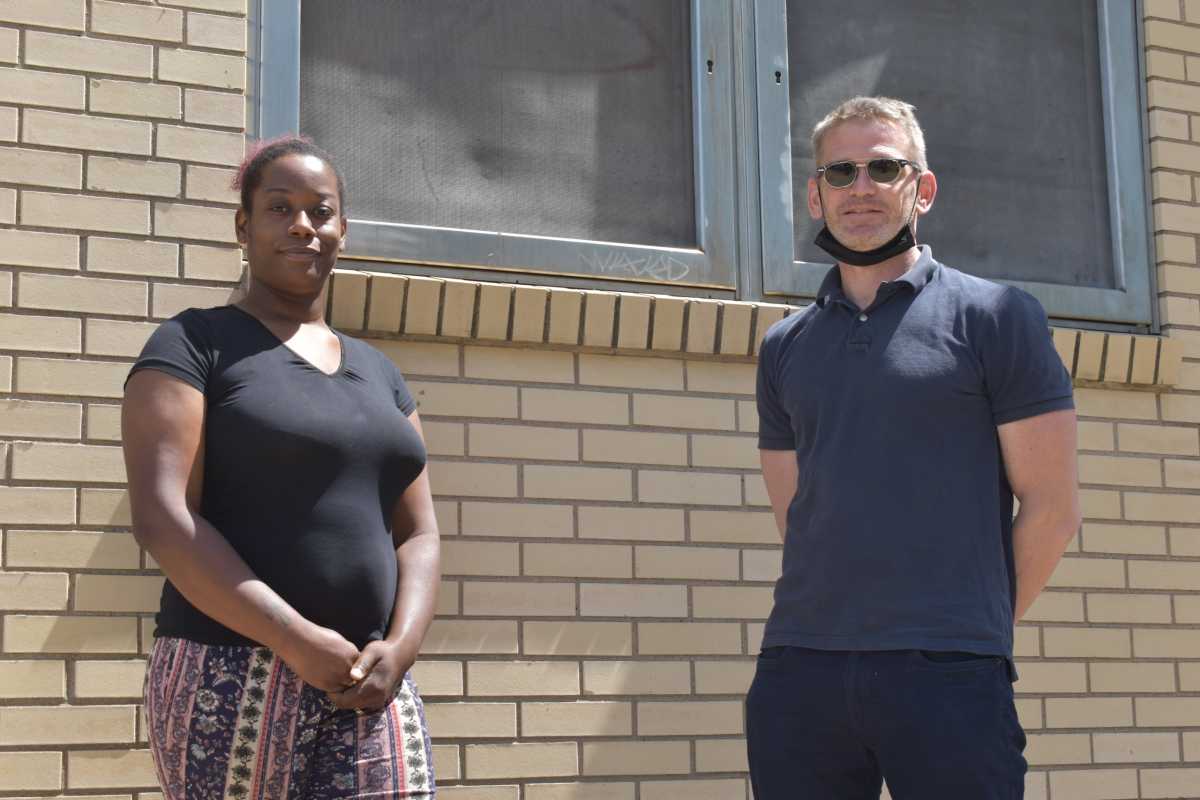Weavers Way, the cooperative grocery store founded nearly 50 years ago that prides itself on organic and locally-produced food, wants to grow roots in Germantown — figuratively and literally.
“Eventually, we’re going to have a farm on the roof of the building here,” said Jon Roesser, the co-op’s general manager, speaking inside a converted barber shop next to the yellowish corner property that will become the organization’s next market.
But don’t expect to see farmers harvesting produce anytime soon atop the structure on Chelten Avenue near Morris Street. First on the agenda for Weavers Way is converting the building into a 6,000-square-foot store, a project Roesser estimates could cost $4 to $5 million.
When it opens — hopefully next summer, co-op members say — the location will be the organization’s fourth and the first new store in several years.
Though the expansion makes sense geographically (the original Mount Airy market is less than 2 miles away), Germantown is, in some ways, new terrain for Weavers Way.
Residents in the neighborhood’s 19144 zip code have a median household income less than half of the incomes in Chestnut Hill and Ambler, where Weavers Way has mostly recently launched stores.
“The demand is no different. The dollars to spend is different,” Roesser told Metro. “We have to take that into account in terms of our business model to make sure that the food that we’ve got on the shelves is accessible to as many people in the community as possible.”
Weavers Way, he added, already has 1,200 paying members in Germantown and another 350 in nearby East Falls, and the crowded Mount Airy store has reached capacity.
In addition, according to a study conducted by the organization, many Germantown residents are leaving the neighborhood to buy food, a “leakage” worth tens of millions of dollars a year.
“We do believe that there’s a tremendous need that’s not being met by the stores in the community,” Roesser said.
He was quick to explain that Weavers Way is not a chain; the new store will be tailored to the needs of the area through an extensive outreach campaign set to begin with a community meeting next week.
“It’s going to start off with just canvassing and having face-to-face conversations with people in the community to see just what their needs are, so we can help meet them,” said Camille Poinvil, Weavers Way’s Germantown outreach coordinator.
A committee will be formed, she said, to engage neighbors, letting them know that the market is coming and soliciting ideas.
“Ultimately, it’s Weavers Way on the sign, but it really is Germantown’s food co-op,” Roesser said.
For those unfamiliar with the cooperative model: members can buy one share, giving them equal part-ownership of the organization and entitling them to attend meetings, vote on board members and participate in other decisions.
At Weavers Way, shoppers do not have to be members, but those who are receive a 5% discount. The regular membership investment is $30 a year, capped at a total of $400, though people enrolled in public assistance programs can sign up for as little as $5.
Participants can also have a “working” membership, where they pay into the group through volunteer hours at the co-op’s stores or through partner organizations, such as local schools and churches.
If a member decides to move away or doesn’t want to be involved anymore, they can recoup however much money they put into the co-op.

“The other big component of our financing package is members lending us money, their own money, which we then invest in the store,” Roesser said.
In the coming months, Weavers Way will start soliciting such loans, which the group hopes will fund half of the Germantown project cost, he added.
The Chelten Avenue building, which has a loading dock and a small parking lot, was an Acme market until the 1970s, and it was most recently used as a training kitchen and offices by JEVS Human Services.
Getting a co-op up-and-running is a strenuous process, Stroesser explained, so Weavers Way isn’t anticipating an expansion kick.
“We opened up our Ambler store in 2017,” Stroesser said. “And, honestly, opening up in Germantown five years later is sort of pushing it.”































